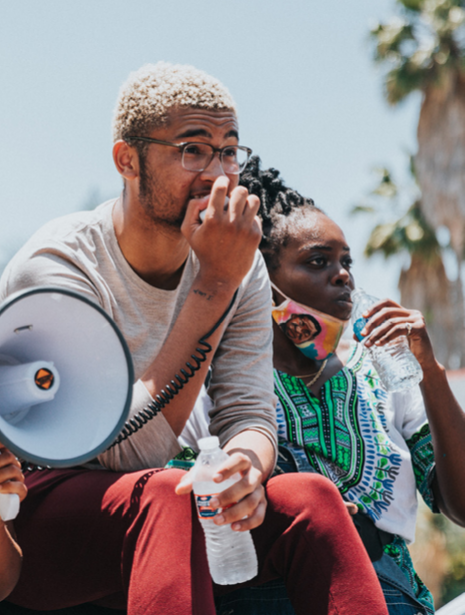Written by Eva Petrova, University of Aberdeen, September 2023
Young adults aged 16-24 are disadvantaged – but disengaged. How can we overcome political lethargy? It starts with localised action.
Young people are the future leaders of our communities. At least, they should be. In reality, they’re politically marginalised, and will continue to have little – if any – say on the direction of British politics unless they acquire a clear understanding of how decisions are made, locally and nationally. Without positive activism, young voters will be followers, not leaders; accepting change, not making it. So, how do we equip them with the tools needed to translate their passions into political participation?
Education – but not the kind you’re thinking. Today’s generation faces more social, financial, and environmental issues than any generation before it. A soaring cost of living, lack of employment opportunities, impending climate disaster… and yet students remain, in the main, politically disengaged. To even begin fixing those obstacles, young people need the skills and knowledge required to participate in the democratic processes that change political discourse. That means providing them with civics education, giving them opportunities to be involved in their communities, and breaking down voting barriers. Political apathy comes from educational gaps – not in long division and spelling, but in political literacy, which is the pillar of a healthy democracy.

A recent APPG (All-Party Parliamentary Group) report showed that fewer than a third of secondary schools taught citizenship education or politics. How, then, can marginalised groups in the student body understand what is needed to prompt political engagement?
Ultimately, this can breed dissatisfaction and mistrust: a 2021 report showed that trust in the Government fell from 39% in 1987 to 15% in 2019. Throw in the growth of unreliable news in a fractious digital society, and young adults become detached from the decision-making process. Turnout in general elections remains low.
Neighbourhood Watch conducted nationwide research over an 18-month period, surveying 2,565 people aged 16 to 24, to understand – and look for solutions to – the lack of participation in local communities. It found that 41% of young people would like to take action to remedy local concerns. More than two-thirds shared anxiety over the increase in crime, including mugging and drink-spiking, and wanted to address the situation. But 47% of respondents said they were unsure where to even start.
Encouraging engagement is an effective step in forming political awareness. It’s crucial to raise issues, small or significant, regional or national. We can start with community actions. Participating in a local campaign, or even just helping to clean the neighbourhood park, can inspire young voters to start thinking bigger and bolder. Taking part in co-led, co-developed projects empowers participants from all backgrounds. Confidence breeds confidence. As one respondent claimed, “Taking an active part in community activities gives us young people a better understanding of the reality of the community”.
Working alongside each other, young adults will be inspired to break down barriers to casting their vote. Only after urging young adults to take part in their local communities can we begin to tackle socio-economic disparities. It’s our collective duty to lift young people towards progress in society. We can help them to be future leaders. You can help to set the agenda for student safety, community and wellbeing by applying to join the Youth Council here.
